Steps Towards the NY Unitary Council
- – an “In My View” article by NIGEL WARD, updating readers on the progress made by North Yorkshire’s 7 District/Borough Councils in regard to their forthcoming abolition under Local Government Reorganisation (LGR).
~~~~~
Readers may be interested to review the following briefing note to members of all seven District/Borough Councils here in North Yorkshire. These Councils (including Scarborough Borough Council) will cease to exist in April 2023. The briefing note concerns itself with the methodology of the hand-over of ‘power’ to the successor Unitary Council (for the whole of North Yorkshire, excepting the City of York Council).
This reorganisation is to be followed by the creation of a Combined Authority (with City of York Council) – a pre-requisite under Devolution – and the election of a Regional Mayor.
Dear members,
Following our third Implementation Board meeting we are pleased to report that progress towards the new council for North Yorkshire remains good. We considered a number of key issues and updates which are outlined for you below
Voluntary financial protocol – All eight councils have made a voluntary agreement around significant new spend. While respecting the decision-making of the eight councils, a voluntary financial protocol is in place to make sure there is transparency across councils on any new and significant spend, as the change programme progresses. This is very helpful as the Secretary of State has the power to impose a section 24 notice, which would enforce such an approach and potentially impose spending limits. The voluntary arrangement puts an agreed protocol in place on new spend
between £200,000 and £500,000, with an escalation process available to oversee new spend abovem£500,000 if required. Ultimately, a decision on a formal section 24 notice is a matter for government.
Costs for town and Parish Council elections in May 2022 – We also discussed the costs of next year’s town and parish elections, which the draft Structural Changes Order (SCO) outlined will be realigned to coincide with the county council elections next May. Currently, charging is a matter for each district/borough council to decide, with the majority deciding they will not be making charges for the May 2022 elections. In the future, this will be for the new unitary council to decide.
Members HR working group – We discussed the establishment of a member HR working group to act as a ‘critical friend’ to the HR work stream around certain matters. A group like this currently assists the county council in a number of matters. Looking ahead this could be broadened to include representation from all councils and operate in a similar way. As leaders/political representatives of all eight councils, we will consider this and discuss it further with members.
Work Streams – We also received an update on progress made by the 15 core work streams, all of which have now completed at least one establishing workshop. This is positive on a number of levels including the collaborative nature that has seen more than 250 staff members from across the eight councils take part. Sub groups will now undertake more detailed work. There were also reports on
three work streams – a summary of which are below.
Corporate Governance – We received confirmation that feedback on the government’s draft Statutory Changes Order (SCO) was submitted in line with the November 17 deadline. It is not anticipated that the order will change substantively and we still expect this will go before parliament in early 2022. Some of the key tasks and work areas for this group are below:
-
- Elections – preparations for May 5 NYCC elections;
- Constitution – a new constitution needs to be written. This is a significant and complex piece of work so officers have started to think about how they will bring this together. It includes matters like area committees, member development, licensing committee functions and overview and scrutiny, powers of the executive, standards etc;
- Dissolution of existing councils & unitary creation – this will ensure successful transfer of property, assets and contracts to the new unitary. Review grants to ensure fair coverage and that smaller organisations are not disadvantaged etc;
- Devolution – will be pursued in parallel with the transition to a single unitary council. The work stream will consider instigating a governance review to create a combined authority and a devolution deal.
Finance – In additional to the earlier key matters in finance we are sharing below some of the significant work areas the finance work stream will consider in depth.
-
- Financial planning – to ensure new council can set a budget and develop MTFS for future years;
- Council tax levels – this work stream will examine the difficult area of council tax equalisation and officers are having preliminary discussions with government around the options for this;
- Income, revenue/credit control – to ensure new council can meet its obligations to collect money from day 1 including council tax and business rates. Consider an approach to debt recovery and that all legacy debts are understood;
- Financial system – to ensure the new council can deliver its services including income management systems and training for new staff as well as compliance checks;
- Companies/commercial interests – including identifying all commercial arrangements, transferring company holdings to the new council and identifying any changed required to governance/controls.
Locality – This group has started to discuss and get to grips with the matters in the business case for LGR relating to community networks and the important role for town and parish councils in the new council’s local agenda. Some of this work stream’s key work areas are included below.
-
- Continuing positive relationships with town and parish councils. Briefings have taken place and the presentation materials are available here: https://www.northyorks.gov.uk/briefings-parish-and-town-councils-and-parish-meetings
- New town councils for Harrogate and Scarborough – including community governance reviews & election process and planning;
- Area committees – including boundaries and decision-making powers and looking at the current member grants and locality budgets;
- Community networks – including more detailed design;
Local service hubs and customer access points – including mapping current face-to-face service offer, agreeing access point locations and ensuring customers can access services locally on day 1. This is a significant programme of work and there is a great deal still to do, but this is a sound start and we will and continue to keep you informed as things progress.


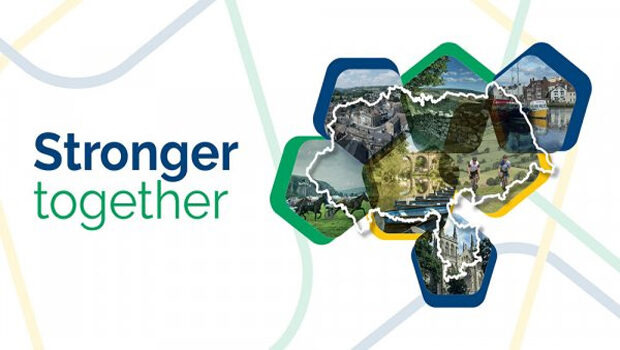




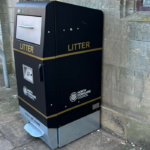

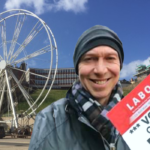
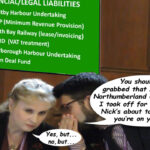
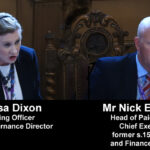
















Comments are closed.